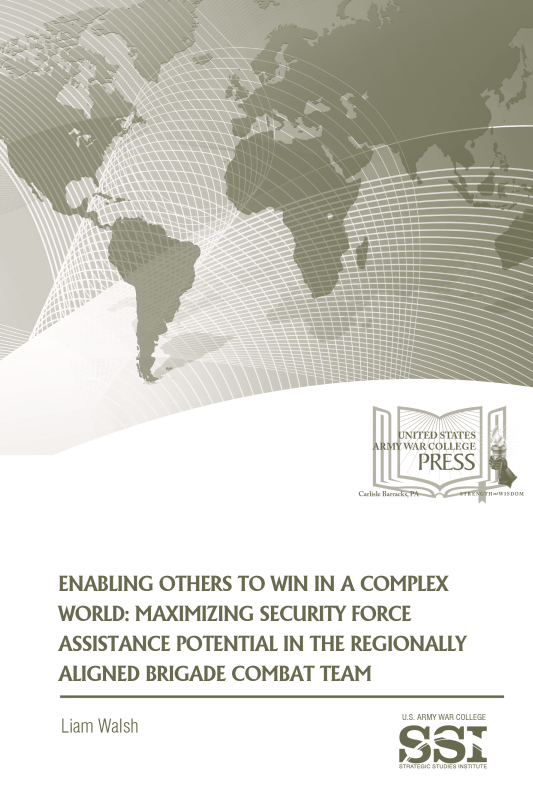 Author: CPT (P) Liam P Walsh
Author: CPT (P) Liam P Walsh
View the Executive Summary
Beginning in 2013, the U.S. Army began an effort to “engage regionally and respond globally.” A central tenant of this strategy, building upon National strategic guidance, is the necessity to build partner capacity. Army units, through the regionally aligned forces concept, may find themselves conducting security force assistance (SFA) missions across the globe as a means to achieve these ways. However, after examining the Army’s SFA mission in Operation IRAQI FREEDOM from 2003-10, it becomes apparent that institutional and organizational shortcomings plagued the Army’s initial efforts in this critical aspect of the campaign. Many of these shortcomings remain in the Army today, particularly within the Army’s core formation—the brigade combat team (BCT). This monograph examines the Army’s role in conducting SFA in Iraq, drawing key lessons for the Army’s experience there, and then provides recommendations as to how the Army can better optimize the BCT to conduct SFA, while still retaining its core mission to fight and win America’s wars.